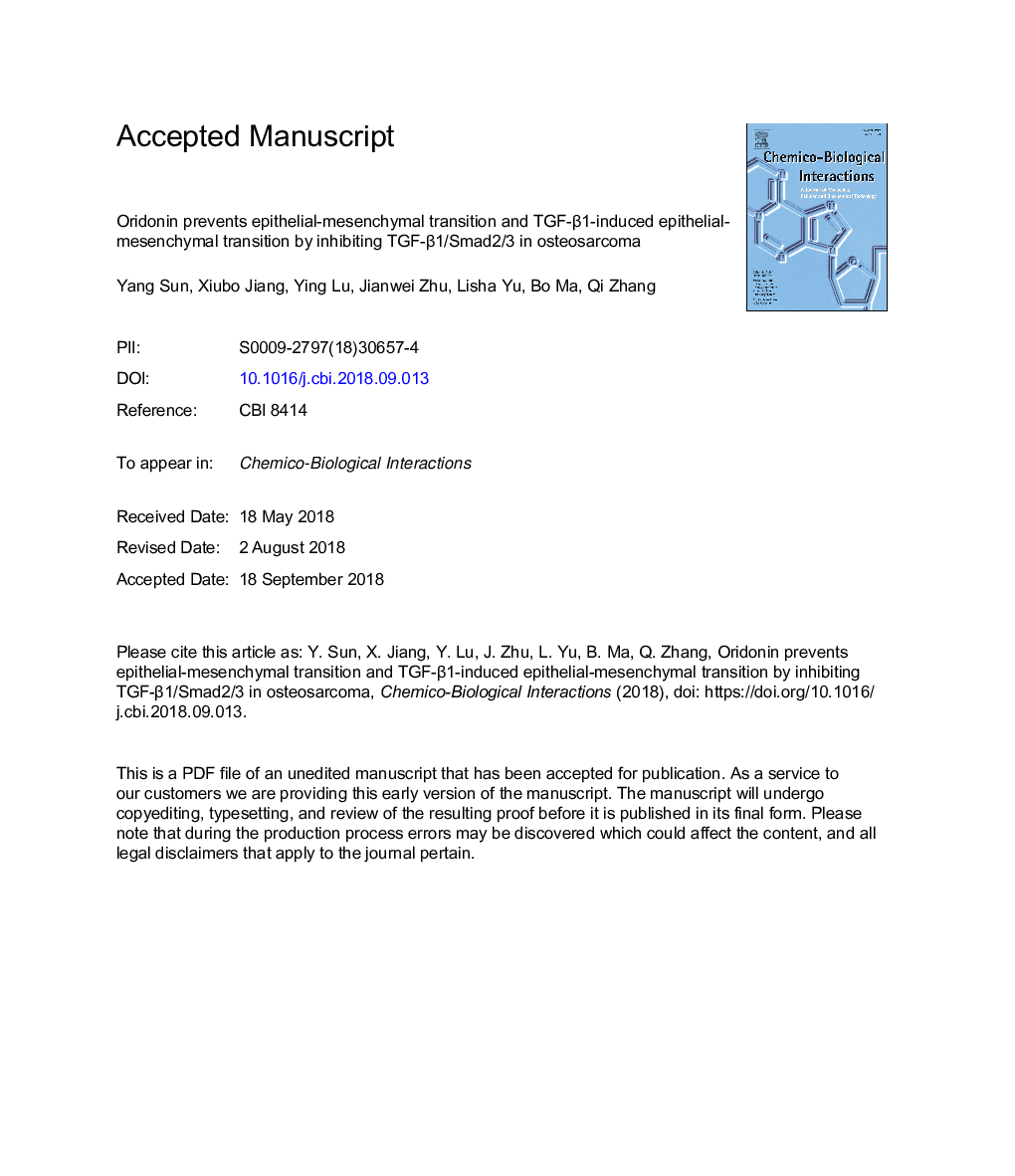| Article ID | Journal | Published Year | Pages | File Type |
|---|---|---|---|---|
| 10158609 | Chemico-Biological Interactions | 2018 | 33 Pages |
Abstract
Osteosarcoma is the most common primary bone tumor with highly invasive characteristic and low long-term survival. Recently, epithelial-mesenchymal transition (EMT) is reported as a key event in cancer invasion and metastasis. Oridonin, a bioactive diterpenoid, has been proved to possess anti-cancer effects. However, the effect of oridonin on EMT and metastasis of osteosarcoma is unclear. In this study, we investigated the underlying mechanism of oridonin on EMT and metastasis of osteosarcoma. We found that oridonin inhibited migration and invasion of MG-63 and 143B cells. Moreover, oridonin increased the protein expression of E-cadherin and decreased that of N-cadherin and Vimentin. Oridonin upregulated the transcription of E-cadherin and downregulated N-cadherin and Vimentin. Oridonin inhibited the protein and mRNA levels of Snail and Slug. Furthermore, oridonin inhibited TGF-β-induced phosphorylation of Smad 2/3, prevented Smad dimer translocation into the nucleus. Finally, we established metastatic models of osteosarcoma 143B cells, and found that oridonin inhibited lung metastasis in vivo. Oridonin increased the protein expression of E-cadherin and reduced N-cadherin and Vimentin. Oridonin inhibited the protein expression of Snail and Slug as well as Smad 2/3 activation. In conclusion, our study demonstrated that oridonin inhibited EMT and TGF-β1-induced EMT by inhibiting TGF-β1/Smad2/3 signaling pathway in osteosarcoma.
Keywords
Related Topics
Life Sciences
Environmental Science
Health, Toxicology and Mutagenesis
Authors
Yang Sun, Xiubo Jiang, Ying Lu, Jianwei Zhu, Lisha Yu, Bo Ma, Qi Zhang,
